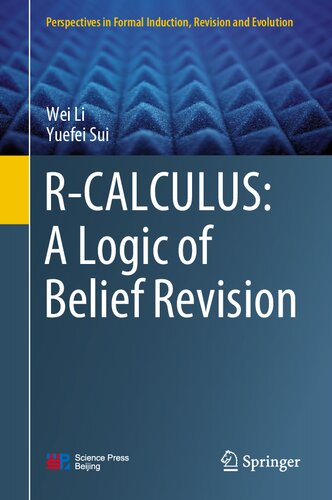

Most ebook files are in PDF format, so you can easily read them using various software such as Foxit Reader or directly on the Google Chrome browser.
Some ebook files are released by publishers in other formats such as .awz, .mobi, .epub, .fb2, etc. You may need to install specific software to read these formats on mobile/PC, such as Calibre.
Please read the tutorial at this link: https://ebookbell.com/faq
We offer FREE conversion to the popular formats you request; however, this may take some time. Therefore, right after payment, please email us, and we will try to provide the service as quickly as possible.
For some exceptional file formats or broken links (if any), please refrain from opening any disputes. Instead, email us first, and we will try to assist within a maximum of 6 hours.
EbookBell Team

4.4
92 reviewsThis book introduces new models based on R-calculus and theories of belief revision for dealing with large and changing data. It extends R-calculus from first-order logic to propositional logic, description logics, modal logic and logic programming, and from minimal change semantics to subset minimal change, pseudo-subformula minimal change and deduction-based minimal change (the last two minimal changes are newly defined). And it proves soundness and completeness theorems with respect to the minimal changes in these logics. To make R-calculus computable, an approximate R-calculus is given which uses finite injury priority method in recursion theory. Moreover, two applications of R-calculus are given to default theory and semantic inheritance networks.
This book offers a rich blend of theory and practice. It is suitable for students, researchers and practitioners in the field of logic. Also it is very useful for all those who are interested in data, digitization and correctness and consistency of information, in modal logics, non monotonic logics, decidable/undecidable logics, logic programming, description logics, default logics and semantic inheritance networks.